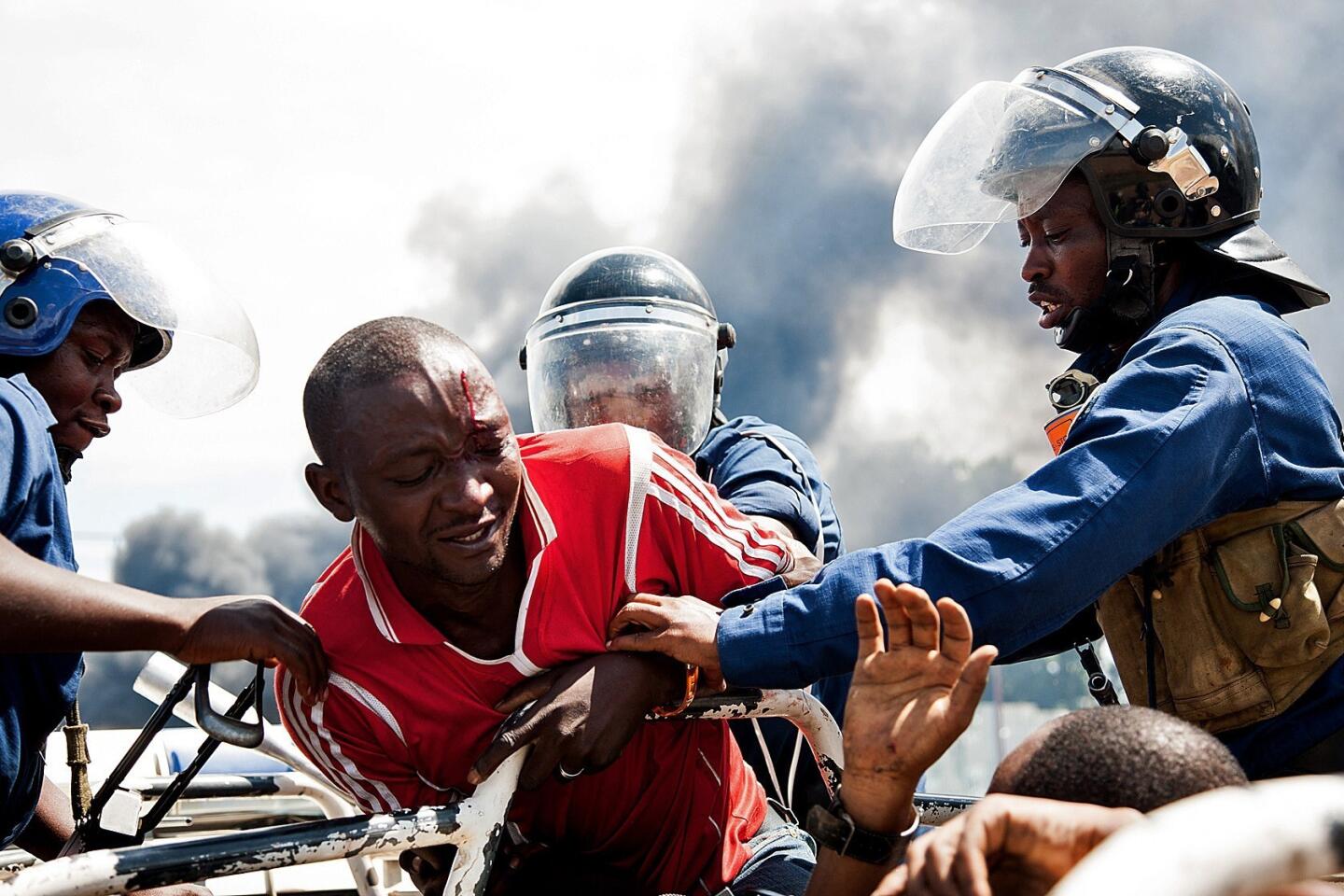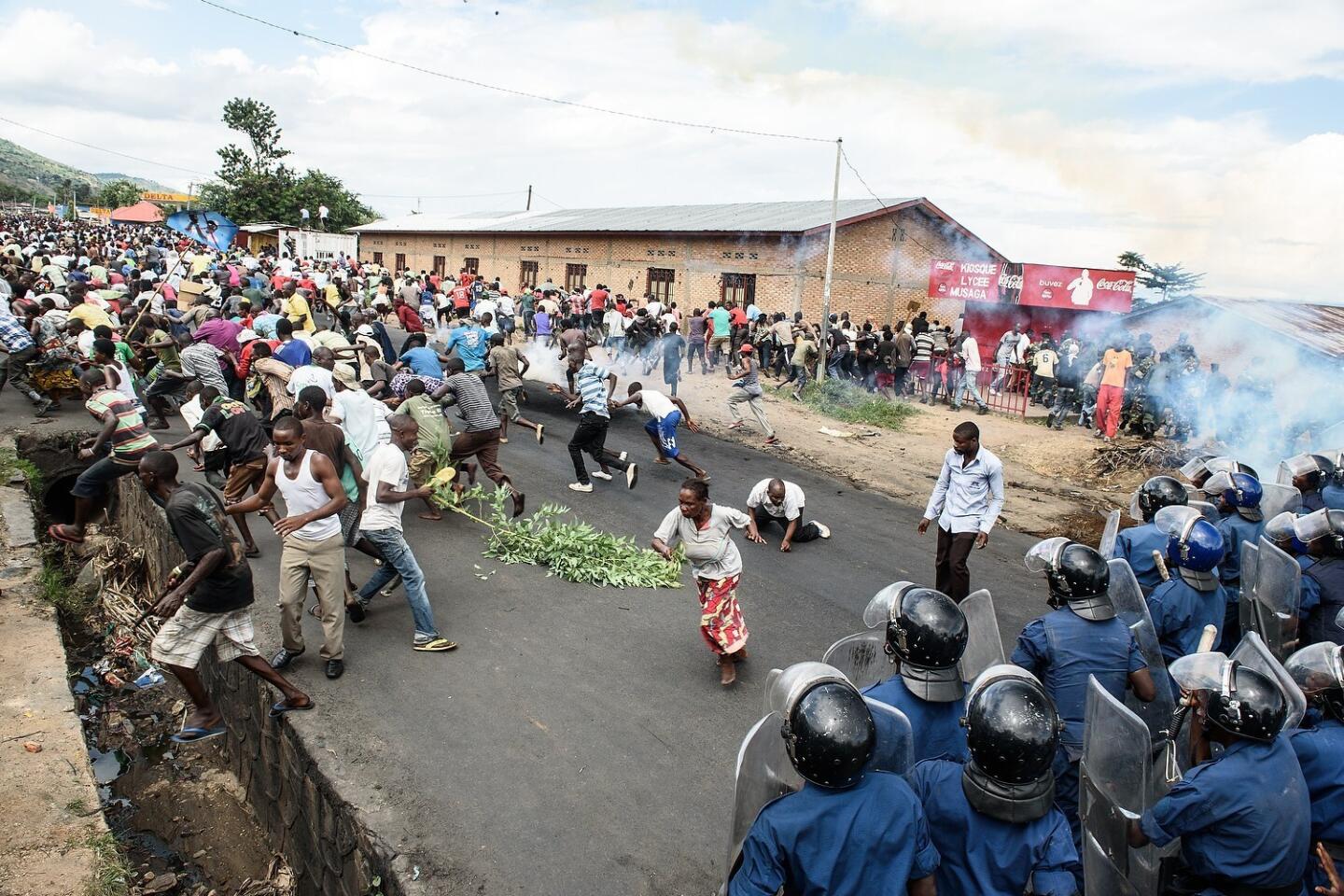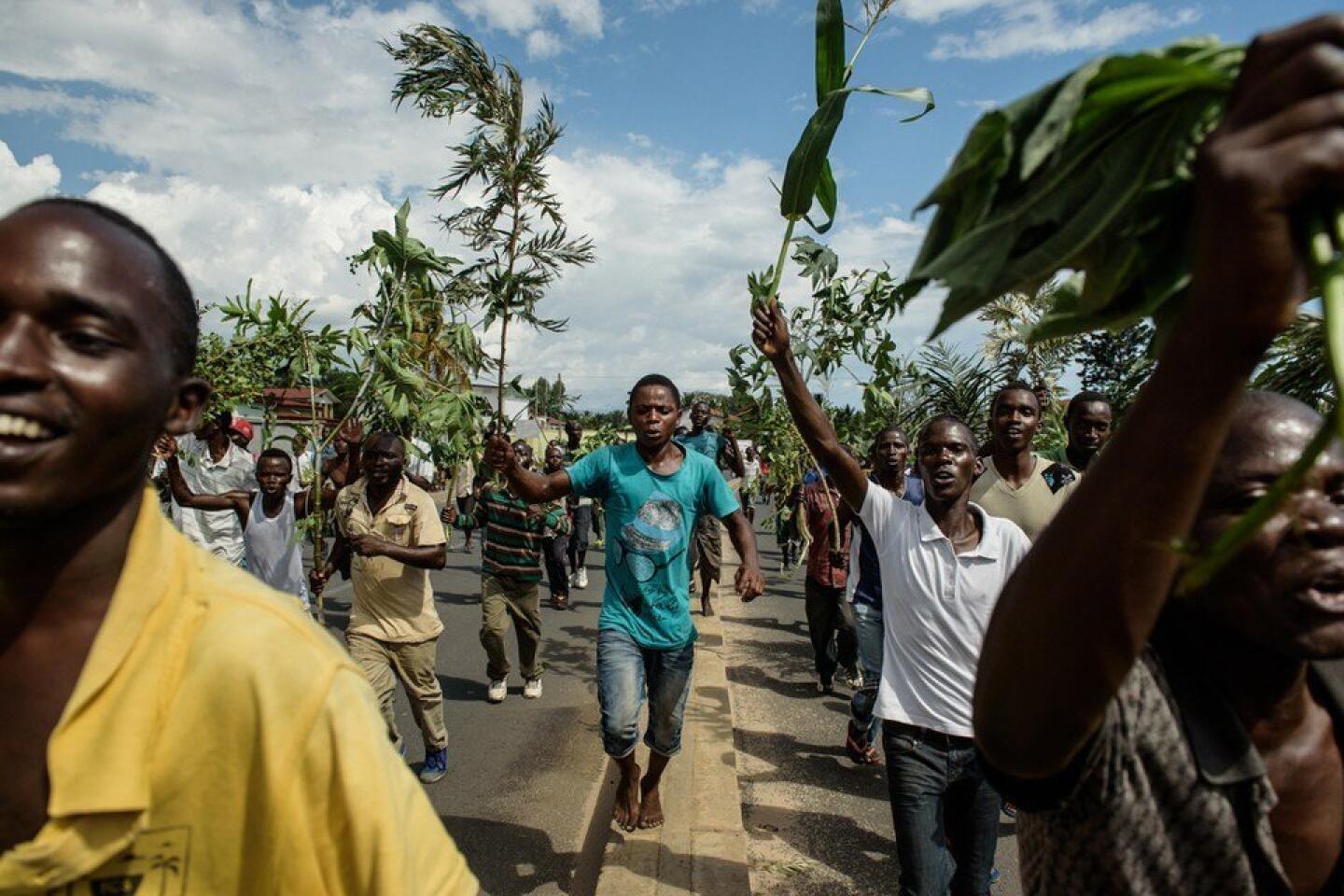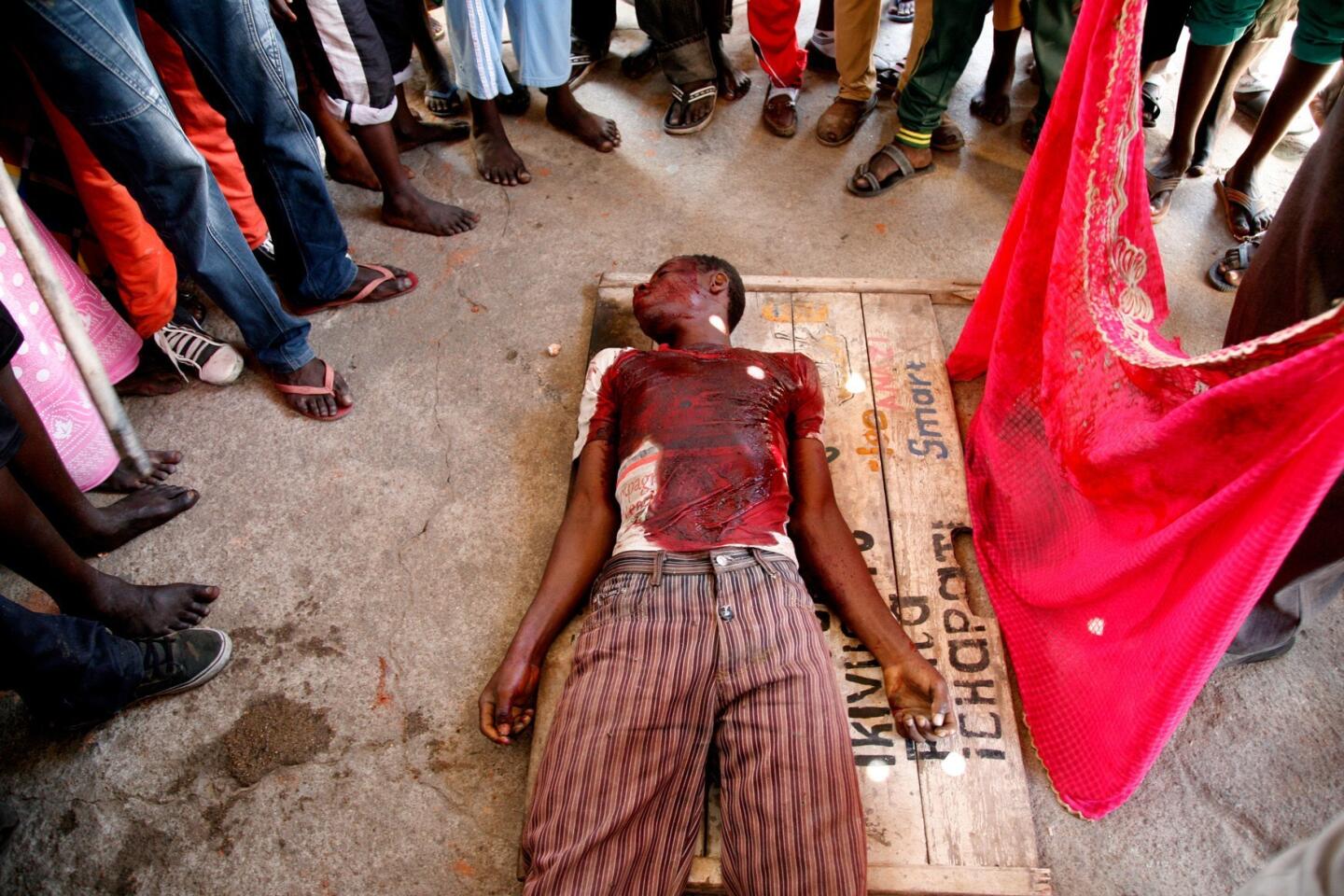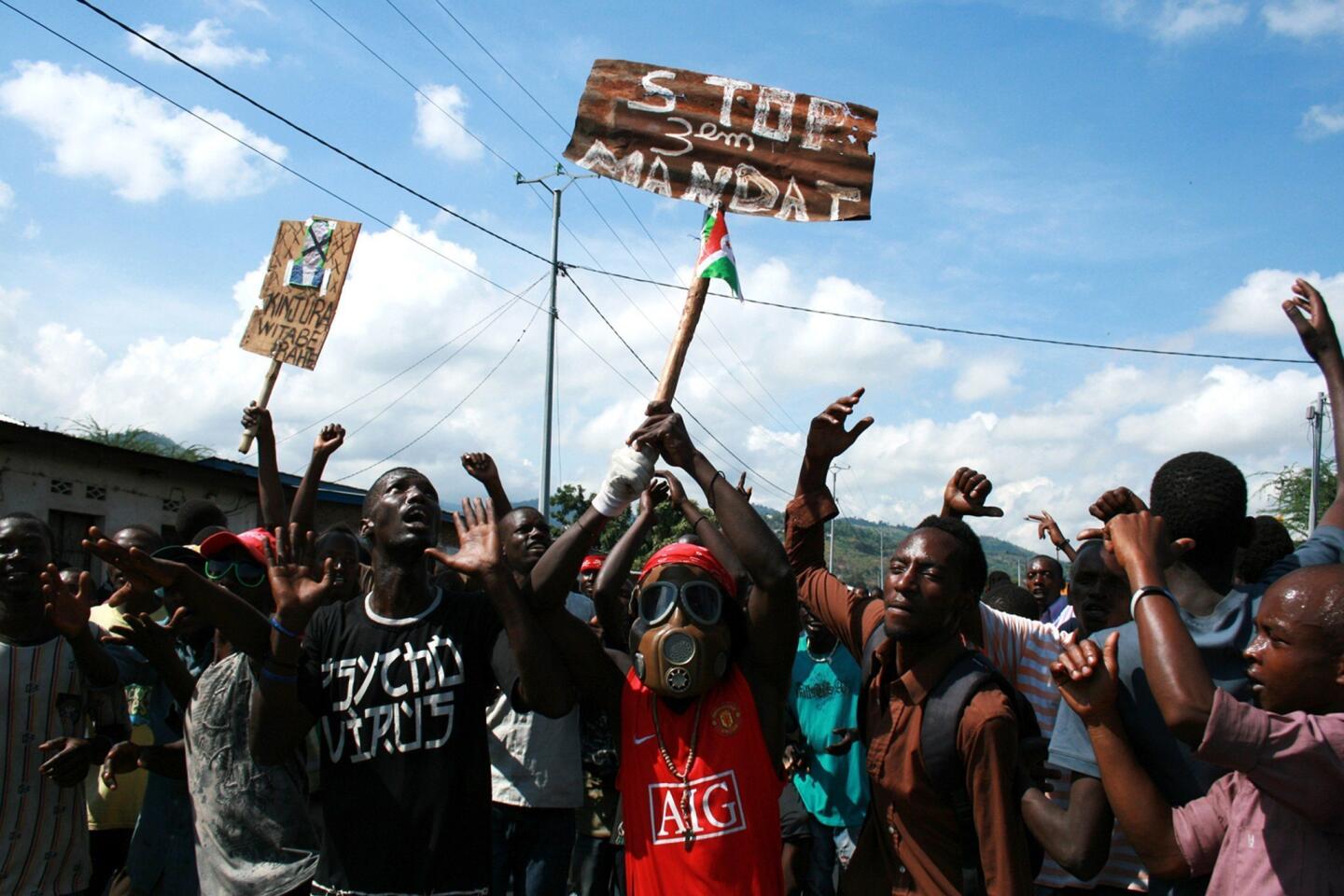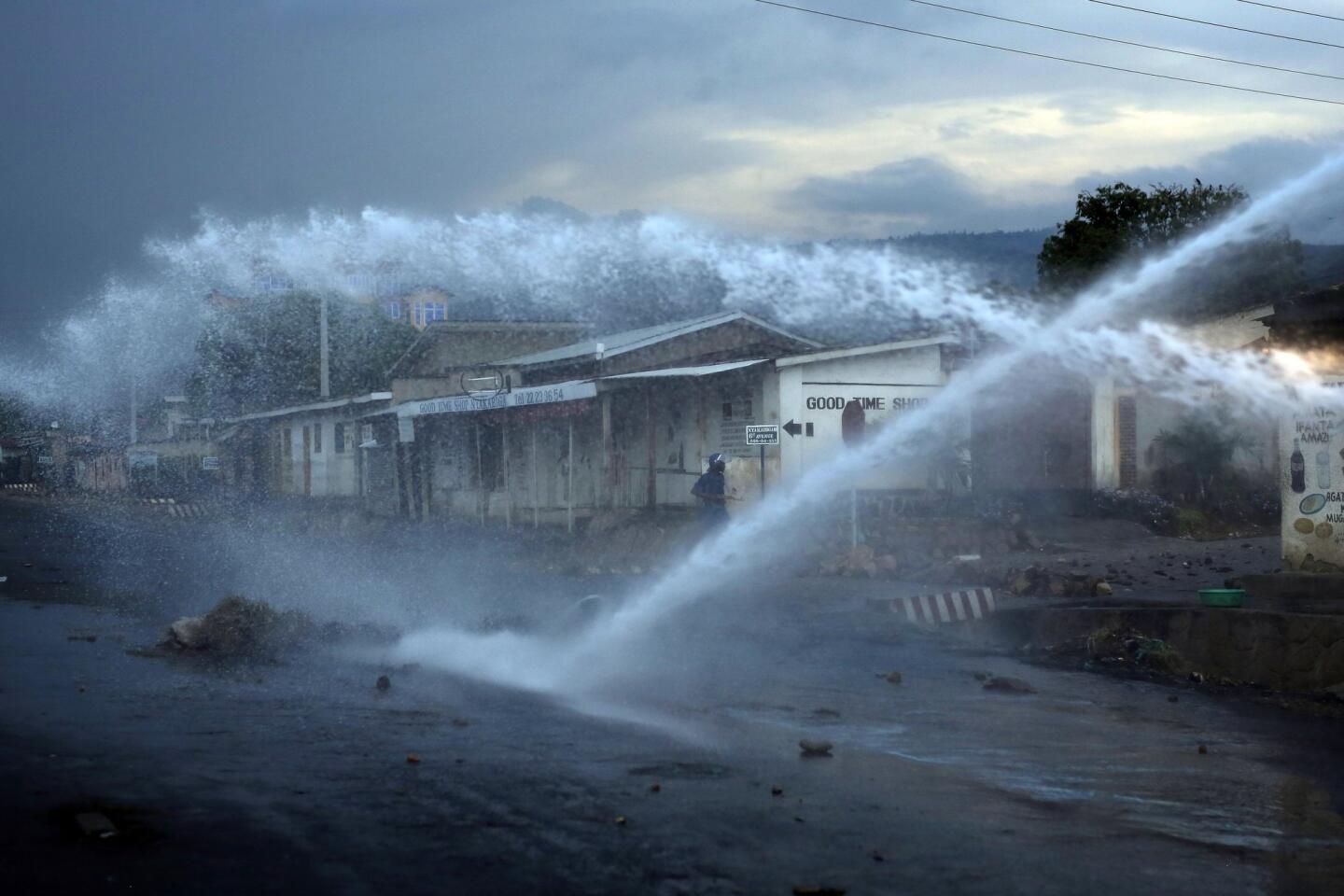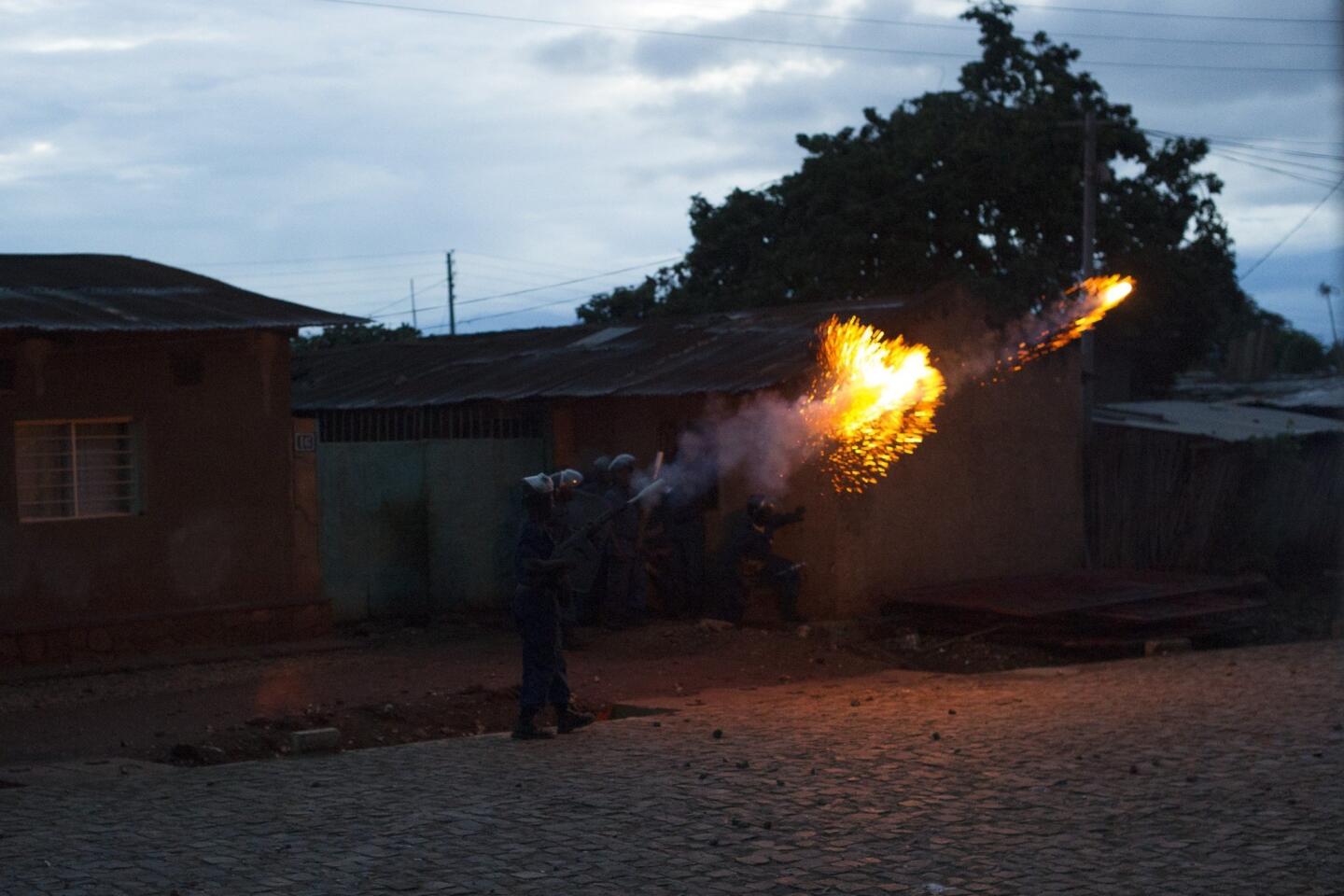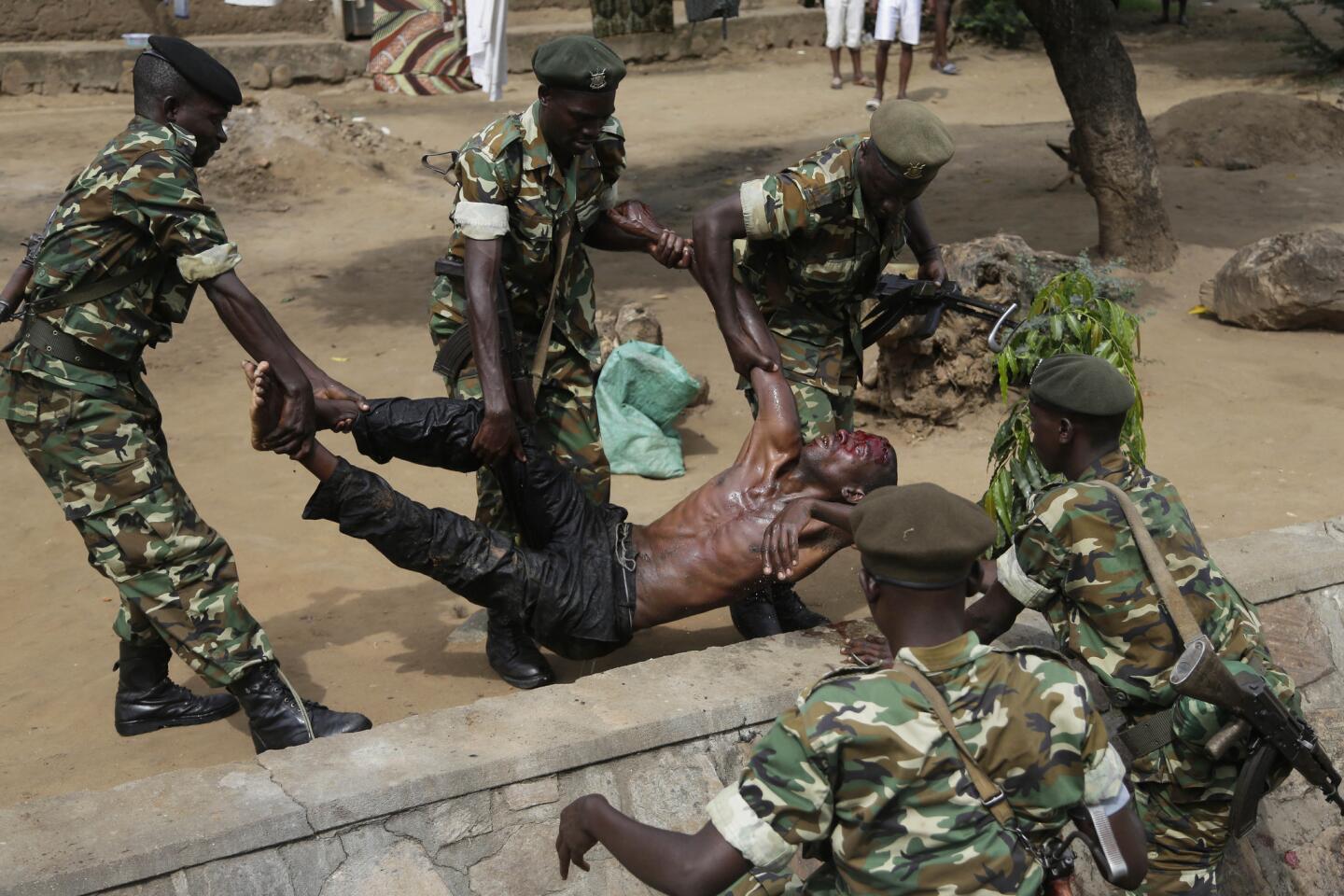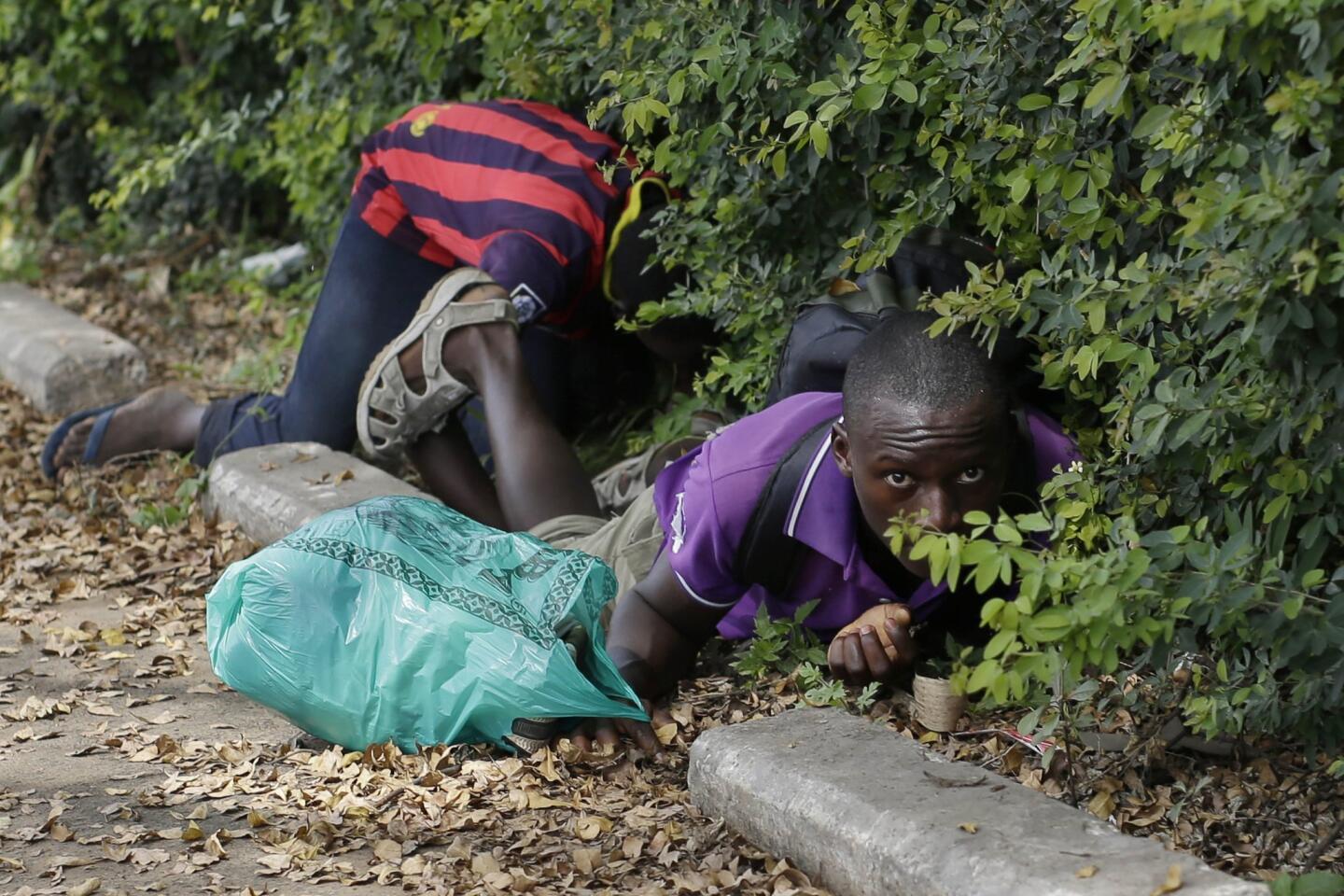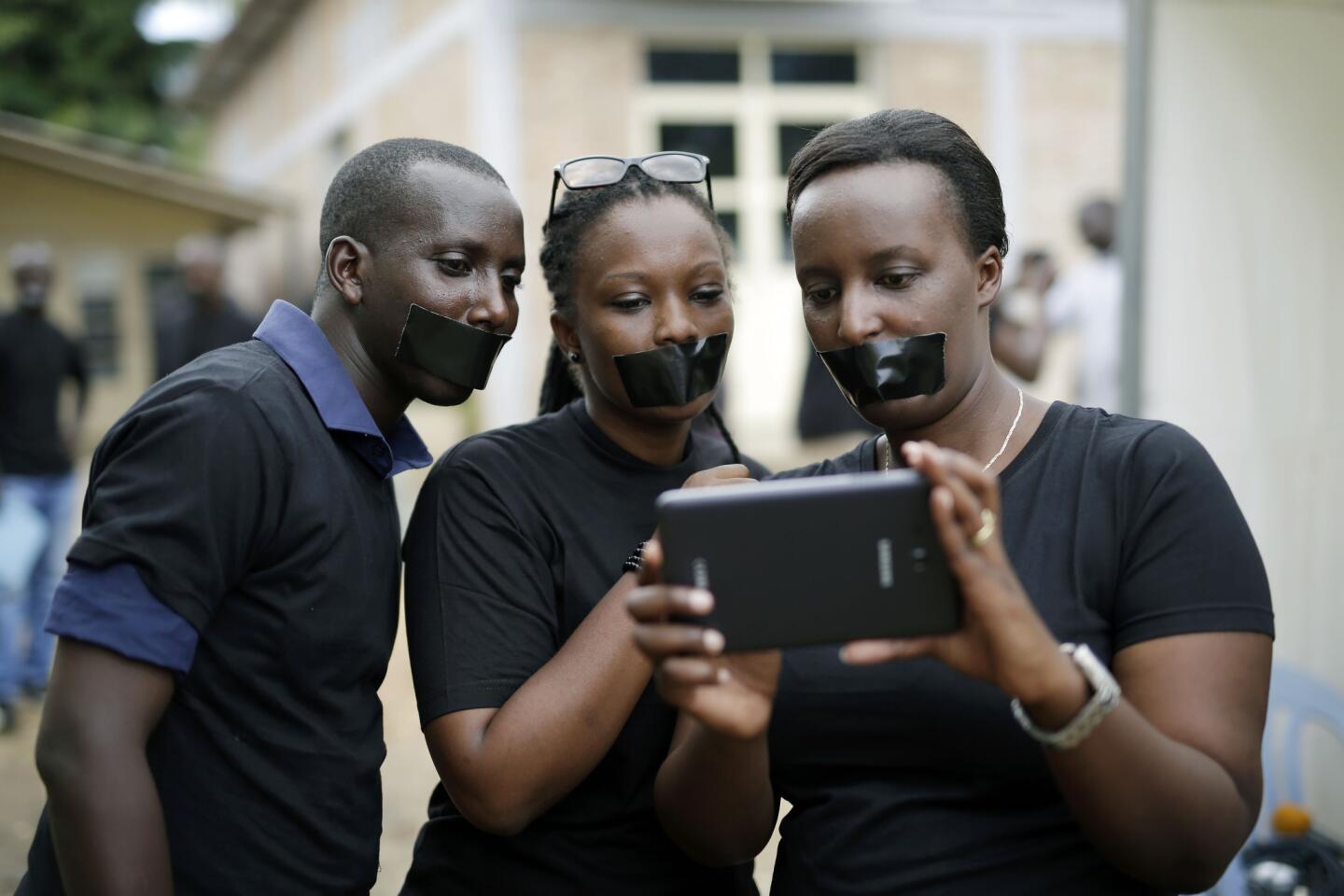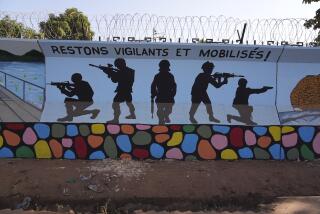Burundi coup bid could plunge nation into another civil war
- Share via
Reporting from Johannesburg, South Africa — Is there such a thing as a “good” coup?
Some observers thought Wednesday’s attempted coup in Burundi might be one, aborting President Pierre Nkurunziza’s widely criticized bid for a third term and perhaps even paving the way for peaceful elections.
But the dangers of the “good” coup were laid bare Thursday, as heavy fighting erupted between rival military factions for control of the state radio and television station and other key strategic facilities.
Analysts said that if the fighting ends swiftly, the situation could be stabilized and Burundi’s worst crisis since the civil war ended a decade ago could be brought back under control. But if the battles for power continue, the risks are stark: renewed civil war, the arming of militias, horrendous human rights abuses, and even a potential regional conflict.
With heavy fighting in the capital, Bujumbura, on Thursday, it was unclear who was in control, or even how many forces remained loyal to the president and how many had joined the putschists. The number of casualties was also not immediately clear, though one BBC reporter saw five bodies near a radio station.
Yolande Bouka, Nairobi-based analyst with the Institute for Security Studies, said in a telephone interview that Burundi risked sliding deeper into violence.
“The situation is very serious,” she said. “What we are seeing in Burundi is potentially the worst-case scenario, which would be a return to all-out civil war.”
But blogger and poet Ketty Nivyabandi called the coup by Maj. Gen. Godefroid Niyombare a “patriotic act.”
“Extraordinary circumstances call for extraordinary measures,” she said on Twitter. “The real Burundi coup is Nkurunziza’s forceful 3rd term, against us & all our laws. Army is now doing their best to undo it. As they should,” adding in another tweet: “and for those of you who can’t handle this ‘unpretty’ fight for democracy, try being tear-gased & shot at daily by your own gvt.”
More than 20 people have died in the protests against Nkurunziza’s bid for a third term these last three weeks, as police have at times opened fire on demonstrators. Opponents say his attempt to stay in office violates the constitutional limit of two terms; the president argues that he was appointed by the parliament to his first term and is free to pursue a second elected term.
After declaring the coup Wednesday, Niyombare’s forces seized control of the airport and closed the borders. Despite the measures, Nkurunziza later tweeted that he had returned to the country from a meeting in Tanzania, though his whereabouts could not be confirmed. Niyombare did not make a public appearance during the day.
A battle for control of information swiftly ensued, in a country where most of the population gets its news from radio. Both sides claimed to be in control. Private radio stations that had broadcast the coup leader’s message Wednesday were attacked and forced off the air by the president’s loyalists.
Thursday saw a major fight for control of the state-owned radio and television station after it broadcast a phone interview in which Nkurunziza claimed to be in charge, condemning the coup plotters but offering to forgive any rebellious soldier who surrendered.
The putschists attacked in a bid to dislodge forces loyal to Nkurunziza, and the station stopped broadcasting for several hours. But when broadcasts resumed in the late afternoon, the station remained in the hands of presidential loyalists, a crucial setback for the coup leaders.
Burundi’s civil war lasted more than 12 years and killed at least 300,000 people. Nkurunziza, head of a Hutu rebel group, took office in 2005.
The crisis in Burundi, a small nation in Africa’s Great Lakes region, worries analysts because of its location in one of the continent’s most volatile regions, where there is a history of myriad armed militias and grotesque human rights abuses.
The fear is that if the conflict spreads across Burundi, armed militias could cross the region’s porous borders, destabilizing neighboring countries, in particular the Democratic Republic of Congo.
So far, Burundi’s crisis is a battle for political power, not an ethnic fight between the Hutu majority and Tutsi minority, whose conflicts played a role in the civil war and the genocide in neighboring Rwanda. Nkurunziza and rival Niyombare are Hutu, and there are members of both ethnic groups on either side.
Filip Reyntjens, professor of African law and politics at the University of Antwerp and an expert on Burundi, said in a phone interview that continued fighting between opposing military factions could lead former rebel groups to take up arms and join in the power struggle.
“Then you have a full-fledged civil war. If it slides out of control physically, then I am afraid there is not much that can be done, except to threaten all parties,” he said.
“If they start fighting, all parties might well commit serious human rights abuses,” he said. If the country goes to war, the conflict could spread into neighboring countries, he said.
Reyntjens said the international community should have taken stronger diplomatic action in recent weeks to press Nkurunziza to drop his bid for a third term. Another risk is that the Imbonerakure — the ruling party’s youth wing, which has groups across the country and a reputation for thuggish intimidation — could join the fight.
“The Imbonerakure are everywhere, on every hill in Burundi. I think militarily speaking, they’re not so important. They have had some firearms distributed to them, but not so many. But we have seen what machetes can do,” Reyntjens said.
“If civil war veterans become involved they would support Nkurunziza. The important thing about the Imbonerakure and the veterans is they are everywhere, so that is dangerous,” he said.
Rwanda, which has a history of military intervention in neighboring Congo, recently hinted that it would take military action if the Burundi crisis threatened its own security.
Bouka, the ISS analyst, said casualties had been limited in recent weeks because the military had remained neutral as protests unfolded. However, with army factions fighting each other over the key symbols of presidential power, there was a serious risk of all-out war and major civilian casualties.
“What we are waiting for is to see who will gain complete control of the country,” Bouka said. “If one of the groups is able to overpower the other and regain control you might have a return to relative stability. If the fighting continues, then the risk is that conflict could not only be prolonged but spread throughout the country.”
Bouka said that the Imbonerakure had a history of human rights violations.
“If they get seriously involved in the country areas, then the people loyal to Nkurunziza may lose control over the kinds of actions they take and you may have increased violations,” she said.
Follow @robyndixon_LAT on Twitter for news out of Africa
More to Read
Sign up for Essential California
The most important California stories and recommendations in your inbox every morning.
You may occasionally receive promotional content from the Los Angeles Times.
